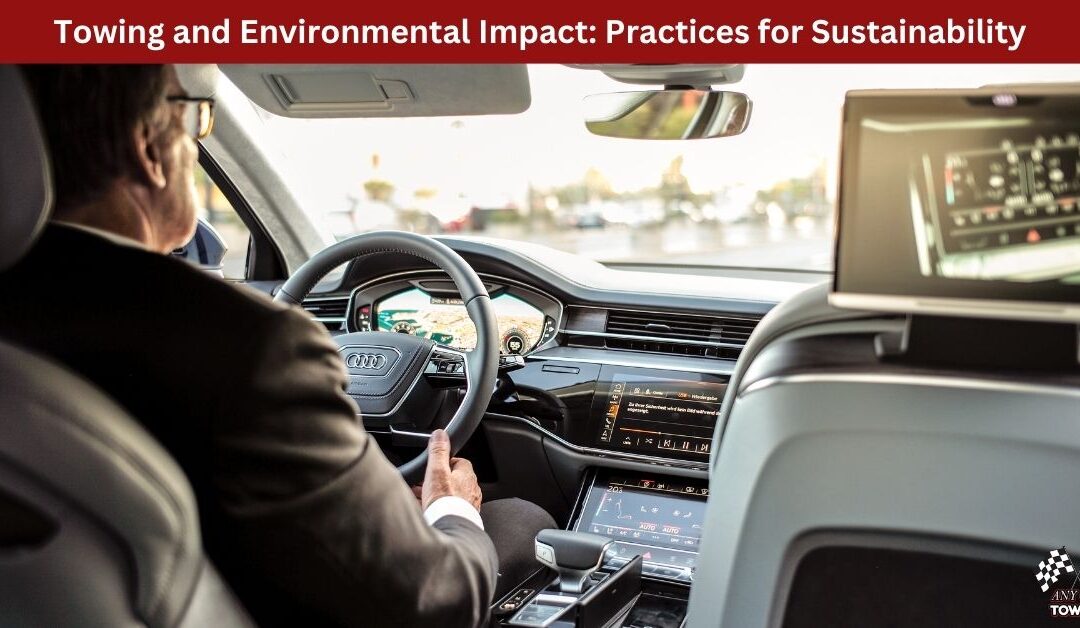The towing industry plays a vital role in keeping roads safe and traffic flowing. But like many service sectors, it also has an environmental footprint. From fuel consumption to vehicle emissions and waste management, tow truck operations can impact the environment in more ways than one. That’s why many modern towing companies are now focusing on sustainable practices to reduce their environmental impact and promote eco-friendly operations.
The Environmental Challenges of Towing
Towing services typically involve heavy-duty vehicles that consume more fuel than standard cars. This leads to higher emissions of carbon dioxide and other pollutants. Additionally, towing often involves handling wrecked or abandoned vehicles that may leak fluids such as oil, coolant, and fuel—posing risks to the soil and water if not properly managed.
Without responsible handling and updated practices, these issues can add up over time, contributing to pollution and unnecessary waste.
Eco-Friendly Towing Practices
Sustainability in the towing industry is not just about reducing emissions—it’s about adopting responsible habits that protect the environment while still delivering reliable service. Here are some practices leading towing companies are adopting:
1. Using Fuel-Efficient and Hybrid Tow Trucks
Some companies are upgrading their fleet with more fuel-efficient vehicles or investing in hybrid and electric tow trucks. These trucks reduce greenhouse gas emissions and help lower overall fuel consumption. Even small improvements in fuel efficiency across a fleet can make a big difference.
2. Regular Maintenance for Better Efficiency
Keeping tow trucks in good condition ensures they run more efficiently, consume less fuel, and produce fewer emissions. Routine servicing like oil changes, tyre checks, and engine inspections are part of a sustainable approach.
3. Proper Fluid Disposal and Spill Prevention
Towing damaged vehicles often involves the risk of leaking fluids. Eco-conscious towing operators are trained to prevent spills and ensure any hazardous materials are collected, stored, and disposed of properly, preventing contamination of land and waterways.
4. Recycling Old Vehicles
Partnering with certified auto recyclers allows towing companies to safely dispose of old or damaged vehicles. Recyclable parts are salvaged, hazardous materials are removed, and metal is processed for reuse—minimising waste in landfills.
5. Route Optimisation and Smart Dispatch
Using GPS and AI-based dispatch systems helps reduce unnecessary mileage and fuel use. These systems find the quickest, most efficient routes and assign the nearest truck to each job, saving both time and emissions.
6. Promoting Paperless Transactions
Switching to digital invoicing, e-signatures, and app-based job tracking helps reduce paper waste. It also provides customers with a faster and more convenient experience.
Leading by Example in a Changing World
As environmental awareness grows, customers increasingly value businesses that operate responsibly. Towing companies that adopt eco-friendly practices not only reduce their impact on the environment but also build a stronger reputation within the community.
Being mindful of sustainability also prepares towing businesses for future regulations, as more governments introduce stricter emissions and waste management standards.
Conclusion
Sustainability in the towing industry is not a trend—it’s a necessary step forward. By adopting greener practices and focusing on environmental responsibility, towing companies can continue serving the community while protecting the planet.
At Any Car Towing, we’re committed to responsible towing. From efficient vehicles to eco-friendly disposal, we do our part to keep roads safe and the environment cleaner for future generations.
Now Any Car Towing is available in Cranbourne Victoria 3977.
Contact Us
Any Car Towing
10 Silvergum Pl, Cranbourne VIC 3977
0413 176 223


Recent Comments